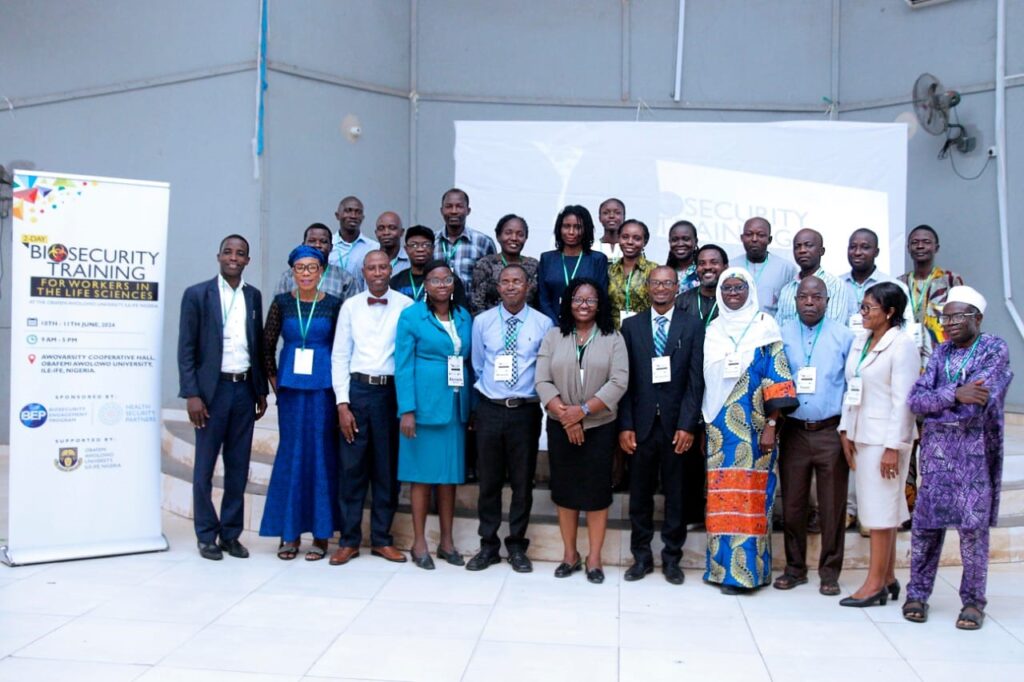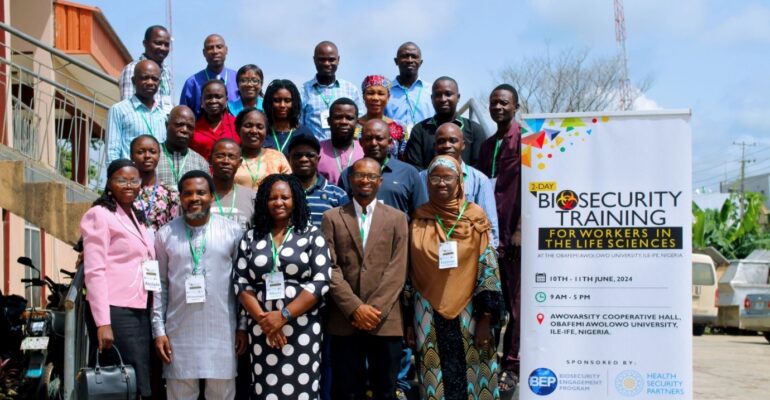Biorisk Management Training at the Obafemi Awolowo University, Ile-Ife, Nigeria
June 21, 2024 2024-06-21 8:23Biorisk Management Training at the Obafemi Awolowo University, Ile-Ife, Nigeria
The biorisk management training conducted on June 10th and 11th, 2024, at Obafemi Awolowo University was well-received by participants, who exhibited great enthusiasm and eagerness to implement their newfound knowledge in their respective departments. The training aimed to raise awareness and promote responsible, safe, and secure practices when working with biological agents and toxins.
Participants were highly engaged and motivated to apply and share their knowledge on biorisk management with their colleagues and management for a comprehensive institutional approach. Trainers utilised the Global Biorisk Management Curriculum Library, projected slides, interactive sessions, case scenarios to build the competency of participants, and plenary discussions were held to facilitate understanding. Participants were also provided with the CWA 15793 document and training materials post-session.
The training effectively filled knowledge gaps and influenced attitudes towards biorisk management. Participants shared their work ethics and practices, highlighting the importance of ongoing education and self-control tools for sustainable practices. Emphasis was placed on the need for continuous training, administrative support, and necessary safety equipment to sustain and enhance biorisk management practices.
Participants recommended using indigenous technology for biorisk management, having top officials oversee biomaterial inventories, developing a university biobank, ensuring top management commitment, and incorporating biosafety and biosecurity into the university’s general studies curriculum.

This training session marks a significant step towards institutionalizing biorisk management at Obafemi Awolowo University, ensuring a safer and more secure environment for research and handling of biological materials. The University is developing its biosecurity safety guidelines and expected to be approved by the Senate shortly. The training was also impactful as the post-test was 45.5%, a score above the 20% at pre-test.






